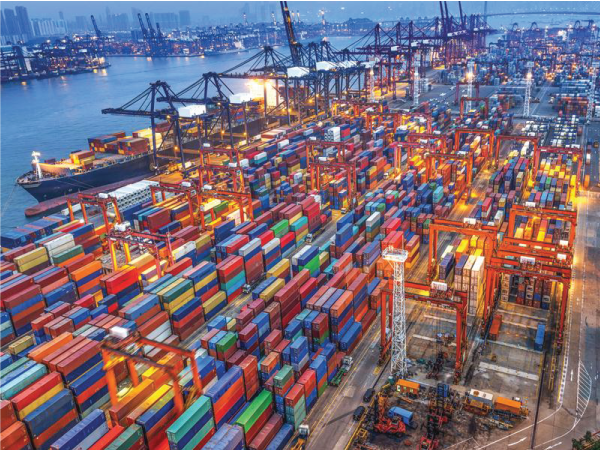Understanding Everything About IMO and Its Significance
The IMO, or International Maritime Organization, is a vital component of the maritime industry, regulating international transport operations and overseeing various aspects of maintenance worldwide. Despite its paramount importance, many remain unaware of what IMO truly is and its significance. In this article, we delve deeply into IMO and its functions, shedding light on its operational mechanisms and its profound impact on the maritime sector.

International_Maritime_Organization_Logo
Introduction to IMO
The International Maritime Organization stands as a specialized agency within the United Nations responsible for transportation safety, security, and prevention of sea pollution caused by vessels. IMO serves as the global standard-setting body for safety, security, and environmental performance of international shipping. Its primary role involves establishing a legal framework for fair and effective maritime transport practices that are universally adopted and implemented.
History and Mission of IMO
Like every historical development, the establishment of the International Maritime Organization had its defining moments. Among the various industries worldwide, “Transportation” can be considered an international industry.
Transportation has facilitated over 90% of global trade through cargo transportation and various merchant vessels. Simultaneously, each vessel operates under the jurisdiction of multiple countries, spending a significant portion of its time at sea within different legal jurisdictions.
Hence, at the beginning of the last century, the need arose for a global governing body to set rules and standards for the transportation industry, both within the maritime sector and globally.
Consequently, the International Maritime Organization came into existence.

The first international agreement, “Safety of Life at Sea – SOLAS,” was adopted shortly after the Titanic disaster.
Although IMO was established in 1948 in Geneva, it wasn’t until 1959 in London, the organization’s headquarters, that it was effectively enforced and widely applied.
Mission and Responsibilities of the Organization
The mission and responsibilities of the International Maritime Organization encompass developing and maintaining a comprehensive framework of regulations and policies for maritime transport and related activities, including maritime security, safety, technical cooperation, environmental concerns, and legal issues.
In other words, the organization’s role is to create a level playing field where owners and users ensure effective safety, security, and environmental practices.
IMO’s Impact on the Maritime Industry
Transportation is integral to sustainable economic growth in the future. Through IMO, member states, civil society, and the maritime industry collaborate to ensure consistent contributions and enhancements to the economy, fostering sustainable growth. Promoting sustainable maritime transport and maritime development is a primary focus of IMO in the future.
As part of the United Nations, IMO aligns with the 2030 Agenda for Sustainable Development and relevant Sustainable Development Goals (SDGs). The success of the 2030 Agenda hinges on global trade-supporting transportation that facilitates favorable conditions for the economy.
Energy efficiency, new technology and innovation, maritime education and training, maritime security, maritime traffic management, and maritime infrastructure development all play significant roles. Through IMO, global standards addressing these issues and others strengthen IMO’s commitment to providing the necessary institutional framework for a global maritime transportation system that is both sustainable and environmentally conscious.
>>> Explore IMO-SOLAS approved products at GOTCO: VIEW PRODUCTS

